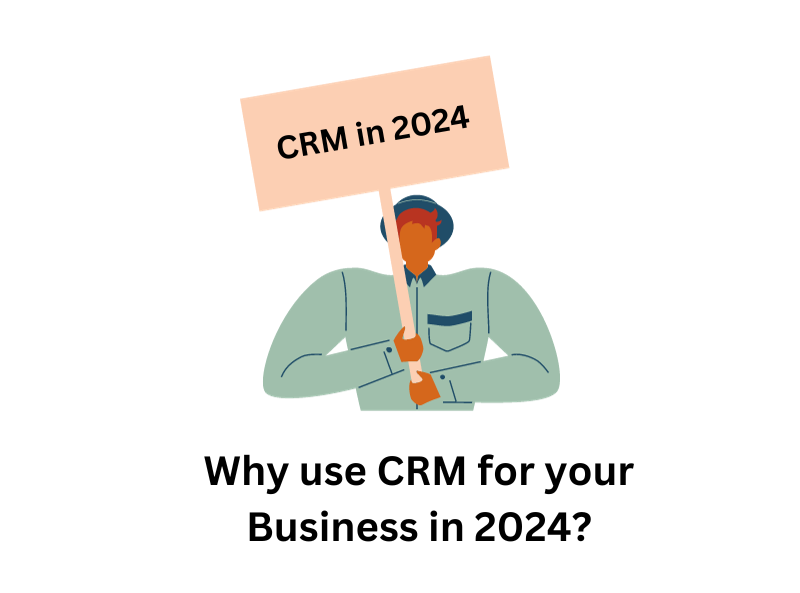
CRM or Customer Relationship Management systems are software tools or platforms that manage, analyze, and improve a business’s interactions with its current and potential customers. When it comes to the day-to-day operations of a small business and its interactions with its customers, a CRM performs several useful and complex tasks for you without error. This is why CRM for project management is being embraced by small businesses all over the world, big and small alike.
There are various reasons why traditional Customer Data Management methods simply don’t cut it anymore. Take a quick look below to understand why CRM is obviously the greater alternative:
| Aspect | Traditional Method | CRM | Advantage of CRM over Traditional Method |
| Data Management | Spreadsheets and paper-based system | Centralized database | 1. Comprehensive view of customer data 2. Improved data accuracy 3. Efficient data retrieval 4. Sharing of data among different departments |
| Contact management | Spreadsheets, other basic digital contact management systems | Integrated Contact Management system | 1. Systematic data storage and easy retrieval 2. Enhanced accessibility and search capability |
| Relationship building | Based on personal memory and direct interactions | Personalized digital interactions created by CRM | 1. Consistent and personalized interactions 2. Better customer satisfaction |
| Customer interactions | Direct interactions like meetings and phone calls | Automated, multichannel interactions | 1. More scope for meaningful customer interactions 2. Improved customer engagement and response time |
| Task-specific software | Different software for performing different tasks | All-in-one solution for all tasks related to Customer Relationship Management | 1. Integrated workflow for seamless operations 2. Reduced complexity and training requirements |
| Sales and marketing process | Manual step-by-step process performed by experts | Automated pipeline functioned by software | 1. Faster and more effective operations 2. Data-driven insights for strategic decision-making |
So, if you are yet to leverage CRM software solutions to your benefit, it’s high time you do it now! Here are 5 reasons why you must get a CRM for your business in 2024:
Create a centralized database with customer data
One of the major CRM functions that you must leverage is creating a centralized database with all the customer data derived from various different sources, such as sales, marketing, customer support, and other departments. It also collects and stores data derived from communication channels such as phone calls, email and chat support, social media interactions, etc. This uniform database is then utilized by different teams and departments within your business. Thus, having a CRM for small businesses means you are equipped with data-driven decision-making in favor of your business.
Identify and onboard potential customers
CRM can be a great tool to expand your customer base. It offers a handful of resources and tools to identify and onboard potential customers:
- Lead Capture Excellence: CRM excels in capturing leads from multiple sources like websites, social media, and external databases.
- Sequential Onboarding Tactics: Once potential customers are identified, CRM employs sequential tactics for efficient onboarding.
- Automated Marketing Processes: CRM automates marketing processes, targeting different customer segments and managing the sales pipeline with precision.
Retain existing customers by improving Customer Relationship
Integrated CRM platforms not only include onboarding new customers, but also helps in retaining your existing ones.
- Personalized Interactions: CRM leverages customer data for personalized interactions, enhancing communication effectiveness.
- Targeted Marketing Campaigns: Launching targeted marketing campaigns based on demographics and purchase history ensures favorable outcomes.
- Improved Customer Understanding: Understanding customers through CRM leads to better services, fostering long-term relationships.
Automate Sales pipelines
Another important function of CRM for project management is that it automates the sales pipeline by integrating lead capture, tracking customer interactions, and streamlining sales processes.
- Streamlined Sales Processes: CRM automates sales pipelines by integrating lead capture, tracking interactions, and streamlining processes.
- Lead Scoring Efficiency: Prioritized attention to promising prospects is ensured through automated lead scoring.
- Data-Driven Insights: CRM analytics track sales performance, providing valuable insights for strategic decision-making.
Provide better Customer Service
CRM enhances customer service by providing a centralized platform for managing customer interactions.
- Centralized Platform: Integrated CRM platforms serve as a centralized dashboard for managing customer interactions, consolidating comprehensive customer data.
- Efficient Case Management: Automated case management ensures swift handling of customer queries and issues.
- Proactive Service Improvements: Data analytics in CRM offer insights into customer trends, enabling proactive service improvements for a personalized and satisfying customer experience.
In conclusion, is a transformative tool that empowers businesses in critical areas. By automating workflows, improving customer interactions, and leveraging analytical data, CRM software solutions hold the potential to revolutionize business operations in 2024. Integrated CRM platforms are pivotal for enhancing overall customer satisfaction and contributing to sustained business success. Implementing CRM for project management will open doors to newer and advanced possibilities that are beyond the capabilities of a traditional Customer Management method.
So, what are you waiting for? Try PeppyBooks today!
